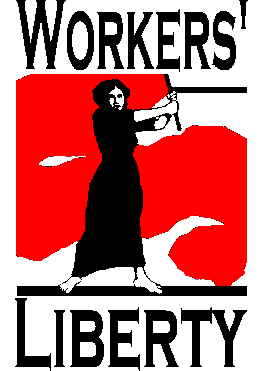
 |
Workers' Liberty'the emancipation of the working class must be the act of the working class'Workers' Liberty Australia |
back to front page of this issue
S11 and the ALPby Janet Burstall " Kim Beazley should be worried. The events [of S11] in Melbourne represent a long-term political threat to the ALP." wrote John Passant in The Age, 19 September. He pointed out that "Calling the protesters fascists (as Bracks and Bob Carr did) further alienates those who are concerned about the direction society is heading - many of them ALP members or voters. By their actions and words these ALP leaders have allowed the hard left to paint the ALP as the lapdogof the rich." This is all too true. And as Passant pointed out further, lots of people are likely to draw the conclusion that they should vote Democrat or Green. But the issue that these parties do not address is class, that social change can only be made by the working-class, and that proper, accountable political representation for the working-class is a step on the road to socialism. The possibility of political struggle in the Labor Party over class politics is still present - as shown by the forcing of Bracks to call off his congratulatory BBQ for the bashing police, and less recently, the fact that the NSW Labor Government was forced to back off from its plans for the privatisation of electricity. So, while one legacy of S11 is likely to be a challenge to the politics of Beazley's ALP, it is too early to say that the political force to escalate that challenge can be built only outside the ALP. The last period of growth and militancy of the Left in the ALP was a product of the movement against the Vietnam War. It may be impossible for the leaders of the ALP to innoculate the ALP against this fresh round of radicalism. If the politics of S11 also produce a legacy within unions, especially ALP-affiliated unions, then it would be possible to accelerate the challenge to Beazley and his ilk from within the ALP. Those who turn up their noses at this will miss a chance to encourage positive developments in working-class politics. |
Seattle, workers, the US Labor Party and the electionsA brief email exchange on a relatively minor incident in the US Presidential elections reveals some interesting worker links between the building of an independent US Labor Party, the global anti-corporate alliances and the possibility of renewed activity on the industrial front in the US. The following exchange was between a WL comrade and Hal Leyshon, a Teamsters union leader in the US, on the 4-5 October. WL: Hal, do you have any insights on the reports that Teamsters and Steelworkers with Gore signs attacked demonstrators at the Gore/Bush Presidential debate in Boston? This is very disturbing. What do you think is going on? Hal: Actually this is the only report I've heard of Teamsters and Steelworkers being at the debate. All the other reports I've heard are about Carpenters and Iron Workers - workers usually dependent on getting jobs through a union hiring hall, and therefore more likely to respond to demands from officials to turn out (regardless of whether they are even interested in Gore). Quite possibly a large local like IBT 25 might have turned out their staff, but I don't think many of the rank and file have any loyalty to Gore. Sweeney and the top American Federation of Labor (AFL) officials are responsible for breaking off the fragile blue-green alliance. This is the logic of their "pragmatic politics," subordinating everything to trying to whip up some votes for Gore/Lieberman, including dropping all issues not acceptable to the Democratic Leadership Council (corporate globalization, single payer health care, etc. are no longer mentioned by our officials). On the most basic level, the numbers show that (union) organizing has been put on the back-burner this year. All of this was tragically predictable. A key reason for trying to build a labor party movement is not so much to elect Labor Party candidates, but to get the institutional labor movement out of bed with the corporate-run Democratic Party - a status that results in demobilizing and demoralizing our members (the bureaucratic strangulation of union democracy), blocking direct action, undermining alliances with the social movements, and preventing the development of a social movement unionism. After the November elections, our efforts to rebuild the promising alliances that have been taking shape on the local level will bear fruit: through the Vermont Workers’ Centre, as with JwJ elsewhere, and the recent S26 actions in coalition with janitors organizing in Connecticut, and the logger/environmentalist joint actions in Maine. The unprecedented battle within the Vermont labor movement over continuing to back the anti-labor Democratic governor or take a step towards political independence by supporting his Progressive Party challenger is a hopeful sign. The strategic centrality of continuing to build rank and file movements within the existing unions is driven home by the positive example of the TDU led local 174 in Seattle which played a central role in the WTO mobilizations and is one of the very few unions to back Nader. In Solidarity, Hal Leyshon |